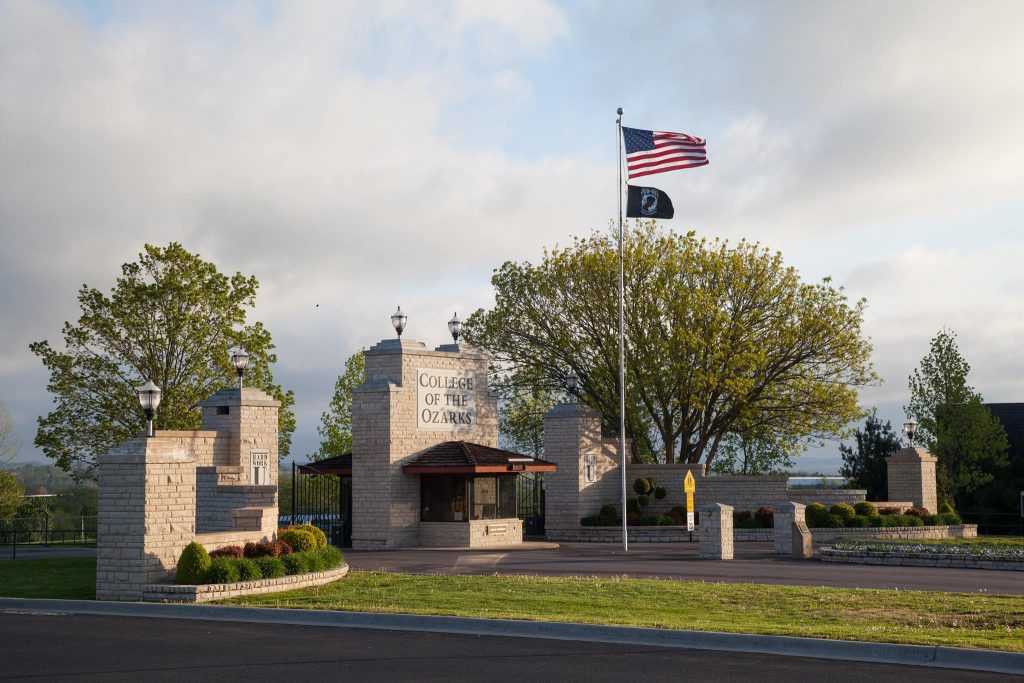It’s a special college that doesn’t just award you a diploma after four years, but teaches you the kinds of valuable life skills that will last a lifetime.
Higher education is hurting. There are safe spaces, where students can seek refuge from ideas they disagree with. And there are trigger warnings, which students must give before saying something that offends someone else.
Recently, at UC Berkeley, a conservative activist was allegedly assaulted by a student apparently because of the activists’ right-wing politics. Conservative speakers — sociologist Charles Murray, podcaster Ben Shapiro, author Ann Coulter, etc. — are heckled or even assaulted when they speak on campus.
In fact, President Trump recently signed an executive order threatening the federal funding of schools that stifle the free speech of speakers.
Indeed, it often seems as if the undergraduates are running the asylum. The College of the Ozarks, however, doesn’t play that game. Imagine a nonprofit Evangelical college nestled on 1,000 acres in tiny Point Lookout, within the Ozark Mountains of Southwest Missouri.
Imagine that this college only has 1,500 students, which allows for contact with faculty and administrators, and that only one in 10 applicants get in. Imagine that the vast majority of those who get in choose to attend, resulting in a “yield rate” of 83 percent — one percentage point above Harvard.
Imagine that, due to masterful marketing, debt elimination, smart branding, and solid fundraising, the school has an endowment of nearly half a billion dollars. Imagine that, in line with its mission to serve working-class Midwesterners, as much as 70 percent of students hail from the surrounding area and 90 percent have financial need.
Finally, imagine that this place is driven by three things — faith, work, and patriotism — and that, at “Hard Work U,” in exchange for a tuition-free and debt-free education, all students have to have a job on campus and work 15 hours per week.
You might find it hard to believe such a place exists these days. In most colleges, entitlement reigns, social skills are scarce, humility is rare, and students often think they’re the center of the universe.
Many colleges and universities are producing smart young people — that no one wants to be around. Not so at the College of the Ozarks, where I’ve been fortunate enough to speak twice in the last five years.
What strikes me each time I visit is how polite all the students are. Whether they’re checking you into the Keeter Center, a lodge-style campus hotel, or serving you dinner in the student-run restaurant, they’re always professional, attentive, and courteous. They’re taught to say “hello” and “good morning” without exception.
The young people you meet there are different from those you might meet elsewhere. And a big reason for this is the school’s mission, which is not like that of other colleges and universities.
Whereas many schools are content to give students a strong academic background, the College of the Ozarks uses academic preparation as a springboard to four other forms of education: cultural, patriotic, vocational, and Christian.
You see, things are different — by design. Rather than try to be like every other school, administrators have gone out of their way to make the place unique. The genius was to embrace the different, rather than make excuses for it.
They don’t waste time or energy trying to emulate some of the elite universities on the coasts, because they realize that people are drawn to support the school precisely because it’s not like every other place.
The College of the Ozarks — which was founded in 1906 as a high school called The School of the Ozarks and became a four-year college in 1965 — owes much of its success to the vision of its president, Dr. Jerry C. Davis.
Raised by his grandparents in rural Georgia, Davis was saved from what would have likely been a life of run-ins with the law by finding his way to a work school that taught him the value of sweat equity.
He earned a Ph.D. in biology from Ohio State University, found his way into college administration at small schools in the South, and developed a knack for three things that every college president in America should have down pat: marketing, messaging, and money — as in how to raise it.
He was hired as president of The College of the Ozarks in 1988, and put his philosophy to work. The rest is history.
So much of life is storytelling. Whether you want to launch a business, sell a product, or shepherd a university, you need to tell a story. The College of the Ozarks has a great story, and, thanks to Davis, it tells that story at every opportunity.
That’s a blessing, because this is one story we all need to hear.
Ruben Navarrette is a contributing editor to Angelus and a syndicated columnist with The Washington Post Writers Group and a columnist for the Daily Beast. He is a radio host, a frequent guest analyst on cable news, and a member of the USA Today Board of Contributors and host of the podcast “Navarrette Nation.” Among his books are “A Darker Shade of Crimson: Odyssey of a Harvard Chicano.”
SPECIAL OFFER! 44 issues of Angelus for just $9.95! Get the finest in Catholic journalism with first-rate analysis of the events and trends shaping the Church and the world, plus practical advice from the world’s best spiritual writers on prayer and Catholic living, along with great features about Catholic life in Los Angeles. Subscribe now!

